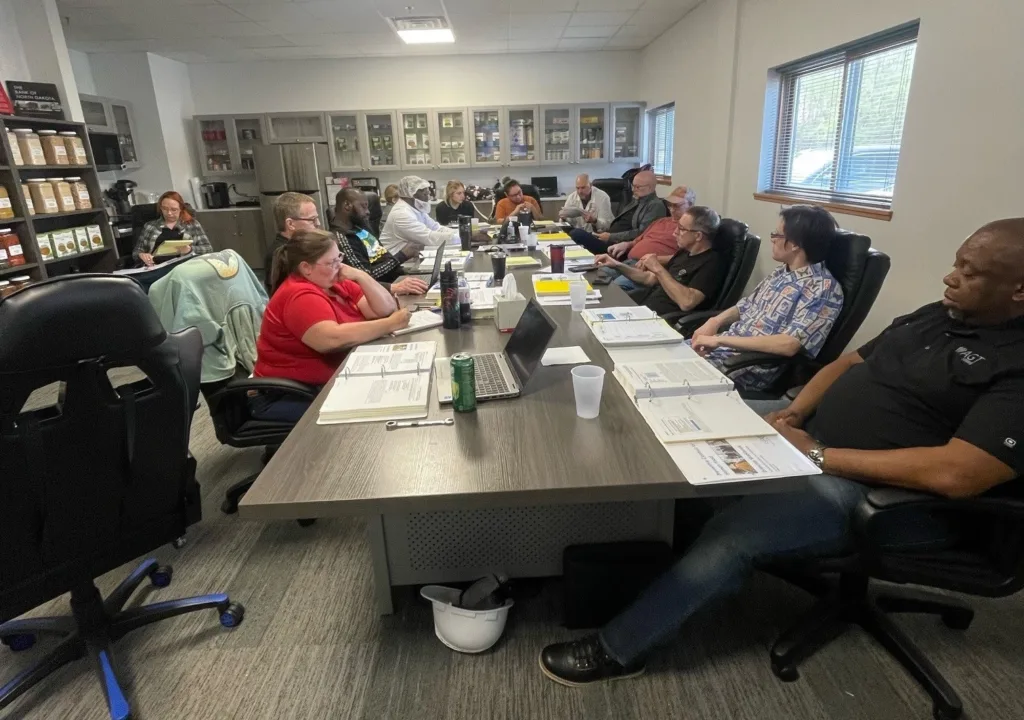

By: Jeff Beach (ND Monitor)
The North Dakota program that provides training and support to manufacturers in the state faces an uncertain future if federal funding is cut.
Impact Dakota temporarily lost its federal funding last month. Jodie Mjoen, CEO and president of Impact Dakota, said federal funding is usually renewed on April 1. This year on April 1, he was informed that the federal funding — more than $800,000 for the year — was being pulled by the Trump administration.
“We were told about 5 p.m. on the 1st that they weren’t going to renew the funds, and we had no advance notice at all,” Mjoen said. “And so we were scrambling.”
The nonprofit organization got a reprieve a couple weeks later, but with funding only for the next six months instead of the usual year.
Impact Dakota did have some revenue coming in from 22 ongoing projects, Mjoen said. Manufacturers that use Impact Dakota for training often pay fees that provide the matching money needed to be eligible for the federal grant.
But without the federal funding, Mjoen said it essentially cut the organization’s revenue in half.
Without federal funding being restored, “We would have been probably shut down within 30 to 60 days,” Mjoen said.
Jeff Edberg is vice president of operations at Spectrum Aeromed, a company that makes interiors for air ambulances and is based at Hector International Airport in Fargo. He also chairs the Impact Dakota board.
He said the funding reprieve gives the organization a little time to work on a Plan B if funding is cut in September.
“We do have a little bit of a reprieve to dig into that little bit more,” he said, with a board meeting coming up later this month.
Mjoen said the organization may be forced to focus more on North Dakota’s larger cities.
“One of the things we’ve always prided ourselves on is that we’re able to support manufacturers in every single community throughout North Dakota,” Mjoen said.
Impact Dakota is part of a national network of state programs supporting manufacturing. Mjoen said the program can offer on-site assessments and advice on how to make the best use of space in a facility and make the manufacturing process more efficient.
Mjoen said Impact Dakota, which has seven employees, can provide some classes to multiple employers at the same time, providing training at a lower cost than private consultants in the Twin Cities or Denver.
Mjoen said value-added agriculture processing is a large manufacturing sector and Impact Dakota helps those businesses navigate and comply with federal regulations.
Edberg’s Spectrum Aeromed has been among the beneficiaries.
“It’s a great resource for all manufacturers in North Dakota,” Edberg said.
Impact North Dakota also works with the state Commerce Department. The department reimburses some businesses for the cost of using Impact Dakota’s services.
“While it’s difficult to predict the exact impact of federal funding cuts on Impact Dakota, we remain hopeful,” Kim Schmidt, communications manager for the state Commerce Department said in an email to the North Dakota Monitor.
“Federal funding is secure through September, and we are optimistic that Impact Dakota will adapt and find alternative sources if needed. We expect more clarity in the coming months as federal priorities for manufacturing growth are revealed.”
The Commerce Department also administers the North Dakota Development Fund that received $5 million in American Rescue Plan Act funds to create Automate ND. Impact Dakota helped assess the applicants for the grant program to address workforce shortages through automation.
Impact Dakota also is working with Bismarck State College on a program to use virtual reality to expose people with disabilities to potential careers in manufacturing.
Impact Dakota dates back to 1999. Mjoen has been with the organization for six years.
“The reward is being able to help and grow these companies,” Mjoen said.
Mjoen said Trump administration tariffs and economic uncertainty mean manufacturers have to be even more cost conscious.
“It seems really bad timing for cuts to come,” Mjoen said. “The program is more needed tomorrow than it is today.”